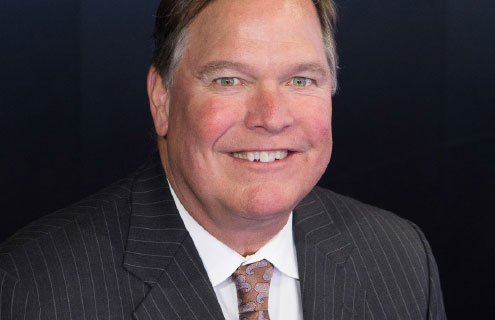SS&C Technologies
SS&C Technologies is causing something of a stir with its recent run of acquisitions, but CEO Bill Stone says it will lead to a better offering for everyone
SS&C has made a number of high-profile acquisitions recently. What prompted these deals?
The largest was probably the acquisition of Advent, and since then we have also acquired Citi’s funds services business, as well as Primatics Financial and Varden Technologies—a lot of work has been done to integrate these acquisitions. There is method to our madness. We might look at anywhere between 10 and 30 companies per quarter, but will only actually acquire a small percentage of those each year.
We already knew Advent well. We use its Geneva product in our fund administration business, so it made sense for us to own that rather than rent it.
We were also excited about Black Diamond, which is Advent’s registered investment advisor (RIA) product, as the RIA space is growing rapidly, so that’s an exciting place to be. There are several other great products, plus about 1,200 top-notch people who we’re very excited to have on our team.
What does Advent bring to SS&C’s business offering?
Each of their products is solving a problem for our clients. Black Diamond, for example, automates the interaction between the RIA and the customer, and Geneva is perhaps the most powerful accounting system in the world, capturing trades and delivering information while also doing net asset value calculations for a lot of sophisticated clients around the world.
What benefits will Advent’s clients see?
SS&C holds a lot of intellectual property, primarily in software, and we have a large development team that can interact with Advent’s development team. We are already experienced in Geneva, so can help Advent build products faster, and we have built a number of applications around Geneva, which we can now offer to all of Advent’s clients.
We have experience and capabilities in different asset classes. We have the capability to manage hedge fund structures, private equity structures, hybrids, funds-of-funds, and more, whether its with an insurance company, asset manager or bank.
Are you seeing increased interest in outsourcing solutions? Why?
We are, and I think it’s partly because it is increasingly difficult for companies to acquire and retain talent. Some of these firms only have 15 people in their middle and back offices, so if they have a high turnover of staff it can be difficult for them to get their work done. We have about 5,000 people working in outsourced back offices, so if we lose a few people—although we don’t like it either—it doesn’t impact us too much.
It’s more about efficiency than about saving money. Efficiency means firms can grow if and when they want to. If they want to expand in to new areas, they can have the expertise directly at their disposal. If they want to move in to new geographies, they can work with someone who is already in those geographies.
We are seeing outsourcing of the whole process; trade capture, position valuation, collateral management, NAV calculation and investors servicing.
There are a lot of processes we are managing for our clients now that haven’t been outsourced nearly as much in the past.
What kinds of challenges come with providing financial services solutions on a global scale?
There are different cultures, and different time zones. Even if we work a 24-hour day, the 24-hour day in Australia is different to that in London, which is different again to New York. The trading day is different, and you have to get that aligned.
We have teams all over the world that specialise in individual countries or particular regions. For a firm that has offices in multiple cities around the world, we would centralise their operation, but still have client-facing people in each city. That way we can capture all of that information, and transfer it to each location when their trading day starts.
It’s also important to train people in a way they’re used to, and to work effectively with local developers and real estate teams.
On top of that you have to work with the regulators to make sure you meet the regulations of each country. It’s important to be sensitive, and to be a good global corporate citizen in those situations.
What are the benefits of growth through acquisitions, and what are the negatives?
The obvious benefits are increasing revenue and earnings, and gaining great people, products and services. We can gain that instantaneously without the risk of trying to build those products from scratch. They’re ready, proven to work, and proven to sell, and then we have a chance to enhance them and market them, selling them with much more scale. These are all very positive opportunities.
However, a lot of investors are focused on organic growth, because that is something that firms create themselves, so it is important to grow organically. Some analysts are afraid that there won’t be enough acquisition targets to continue growing in this way, however, our industry is so fragmented that there are still hundreds and hundreds of companies that are potentially available for acquisition. The supply is nowhere near being exhausted.
What we do is financial record keeping, and the worldwide spend on this is probably about $100 billion a year. Even after all of these acquisitions, we account for about 1.5 percent of that, leaving 98.5 percent to be taken care of by other companies. It’s not going to get too burdensome until we’re at 30 to 40 percent, and that is a long way off.
We’re just interested in gaining great people, products and services, and we’re very excited about what we have gained so far.



